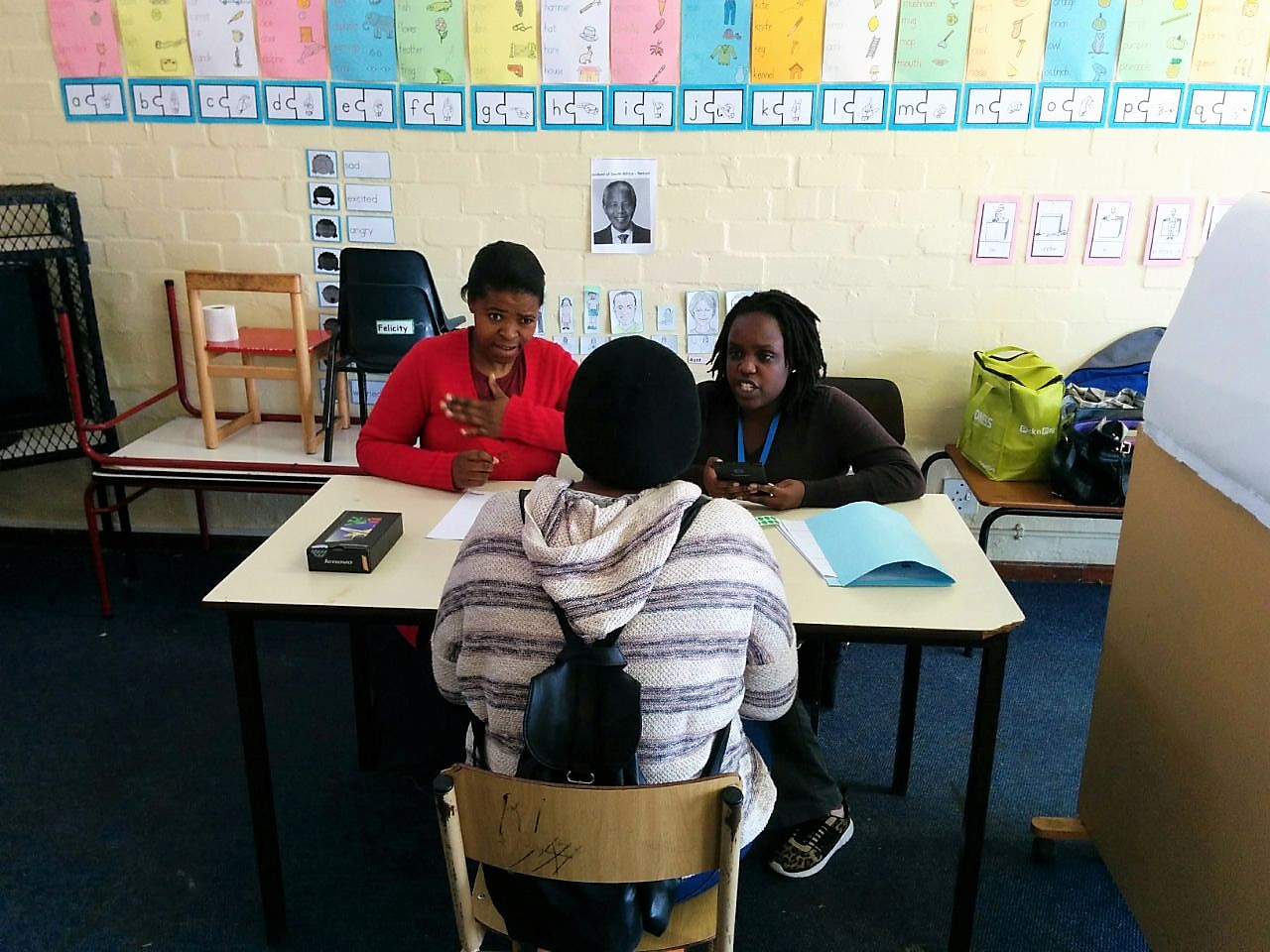Study Reveals Limitations of Maternal Health Services for Deaf Women in Cape Town


A recent study (Gichane, et al, 2017) based in the Public Health Medicine Division, School of Public Health and Family Medicine (SPHFM), UCT is the first study of its kind from Sub-Saharan Africa and the latest from a long term project since 2004, based at the SPHFM, which aims to advance access to health care for signing Deaf people and to bring their needs to the attention of the health authorities. The study was published online April 6 by Disability and Health Journal and later featured on the website of USA-based Association for Schools and Programs of Public Health: and the UNC Gillings School of Global Public Health website.
The paper is based on a project conducted by Waru Gichane, the lead author and PhD candidate at University of North Carolina, who undertook an internship in Cape Town in 2016 (June – August) as part of a Fogarty International Centre (FIC) International Exchange Program for Minority Students run by Professor Luz Claudio of the Mount Sinai School of Medicine in collaboration with Professor Leslie London in the SPHFM. Notably, Ms Mayara Fontes, a co-author of the paper, was also a beneficiary of the same Exchange Program in 2014 placed at UCT. She is now back in Cape Town as a PhD candidate at the SPHFM.
Gichane et al (2017) focused on pregnancy and maternity experiences when using health services in a sample of signing Deaf women of child-bearing age in Cape Town, whose access to health care may be compromised by language barriers related to their disability. There are very few articles written about pregnancy histories, outcomes and maternity service use among disabled women, generally – even though disabled women are acknowledged to be at risk to adverse pregnancy outcomes. The researchers interviewed 42 Deaf women selected by non-probability snowball sampling, using a structured questionnaire in South African Sign Language in Cape Town in July 2016.
Results suggest that the average parity of the sample was similar to that of the Western Cape population. Most women had one or two children (74%). Thirty-one percent of women had experienced a miscarriage and 19% had terminated a pregnancy. Almost all women (96%) attended at least one antenatal appointment during their pregnancies, and all deliveries occurred at a health facility. Women primarily relied on writing to communicate during antenatal visits and labour/delivery. The majority of women reported communication issues due to limited interpretation services, and some reported experiencing mistreatment from hospital staff.
The authors conclude that while maternal service usage was high, the quality of services were inadequate with reports of linguistic barriers and some mistreatment. Findings suggest the need to improve maternity care for Deaf women through implementing interpretation services and providing sensitivity training to health care providers.
The collaboration illustrates the value of international collaboration to build student capacity and UCT’s international reputation as a site for intern placement. More importantly, the interns do important work that benefits local stakeholders and UCT.

In photo from left: Thumie (one of our Deaf staff members), Waru Gichane and Lerato the interpreter after Eye Clinic at GSH. Photo courtesy, SPHFM